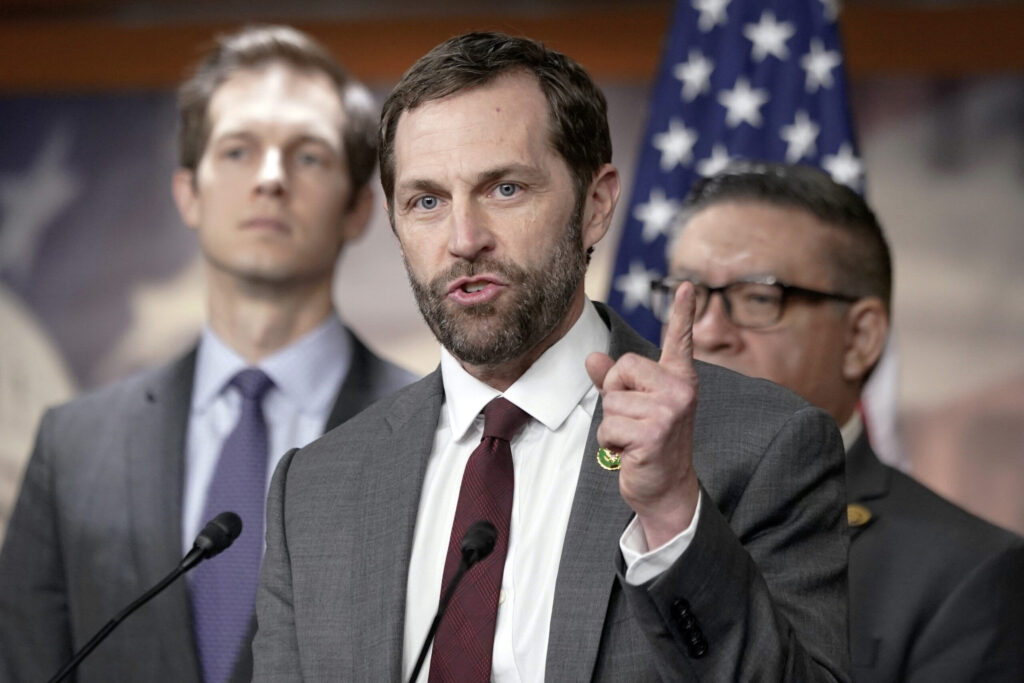Colorado budget faces $1 billion shortfall due to federal tax overhaul
State economists warned that Colorado faces a nearly $1 billion shortfall in the budget for 2025-26 after a federal tax overhaul signed into law by President Donald Trump cut corporate tax revenues and shifted other significant costs to the state.
On Wednesday, state economists, including those from the governor’s office, are presenting the numbers to the General Assembly’s executive committee, which is comprised of six leaders from both chambers in the House and Senate.
The projected cut of nearly $955 million reflects primarily what Colorado will lose because of the Congressional budget bill, H.R. 1, signed into law by President Trump on July 4.
Officials say all the anticipated cuts are the result of changes in federal tax policy, with corporations getting a windfall from increased tax deductions, which means substantially less corporate tax revenue for Colorado.
HR 1 will reduce Colorado state revenue by more than $1.2 billion in the current fiscal year and by about $700 million in the next two years.
On the expense side, there’s some pain, too; the federal bill shifts costs from the federal government to the states, primarily for SNAP benefits and provider fee reductions for Medicaid.
In the first year, that’s about $50 million to $100 million, but that will grow substantially, up to $1 billion by 20232. Couple that with the loss of federal funds for Medicaid, and the impact could reach $3 billion.
OSPB Director Mark Ferrandino told Colorado Politics the state doesn’t have enough money to meet the obligations in the 2025-26 budget. He noted that $1.2 billion is more than the state lost in the first year of the Great Recession in 2008. At that time, the general fund portion of the budget was about $8 billion; it is now around $17 billion.
The June budget and revenue forecast from the Office of State Planning and Budgeting showed the general fund, which is funded primarily by individual and corporate income taxes, was about $40.9 million in the red for the 2025-26 fiscal year.
That’s something that can be easily covered through fiscal year-end reversions, which is unspent funds amounting to about $80 million in a normal year.
But then HR 1 hit, and the 2025-26 general fund budget is forecast to be $954.9 million in the red. That shortfall also means the state won’t be paying out tax credits in the 2026-27 budget year, notably the Family Affordability and Expanded Earned Income credit, approved largely along party lines in the 2024 session.
According to OSPB, the state is still in a structural deficit, with budget demands outpacing revenue, and that will be compounded in 2026-27 if the new HR1 deficit is not addressed.
Now, the question becomes how the state will cover the nearly $1 billion shortfall in the current year’s budget?
OSPB plans to recommend that at least a portion of it come out of the state’s reserves.
Taking that money out of the reserve would leave the state with about a 9% reserve, rather than the 15% required by law. But there are risks involved. The OSPB presentation notes that the remaining money left in the reserve would not be enough to cover a moderate recession that OSPB forecasted in June.
Without any other cuts to the budget, the reserve the following year would drop to 5.7%.
All of this will put the state budget for 2025-26 below the TABOR cap, and OSPB’s presentation says that dropping below the cap will require another $233 million to backfill local governments for homestead exemptions from the previous budget year.
Waiting until the next legislative session that starts in January isn’t going to happen, Ferrandino indicated.
If you cut a dollar, he said, on the first day of the fiscal year, you get a dollar. Six months into the year, or by Jan. 1, to save a dollar, you must cut $2. Waiting for the normal supplemental process, which wraps up in late February, means that for every dollar saved, $3 would have to be cut.
And that will be up to the General Assembly to deal with in a special session that will most likely start in mid-August.
That special session is also likely to include more than just the budget. Lawmakers could be asked to run legislation to delay the implementation of first-in-the-nation artificial intelligence regulations tied to anti-discrimination practices.
Another potential bill could move up the date for implementation of a section of a 2025 law that says any amount of overtime excluded or deducted from federal gross income must be added to the taxpayer’s federal taxable income for calculating tax liability. That provision takes effect on Jan. 1, 2026. However, lawmakers may want to capture that tax revenue and could move up the implementation date to sometime in 2025.
That provision is tied to HR 1, which created a temporary tax break for overtime or tipped wages, which is set to expire in 2028.
Under federal law, up to $12,500 in overtime income is deductible from federal income taxes, effective retroactively as of Jan.1 this year. For tipped wages, the deduction can go up to $25,000.
Colorado’s 2025 law, however, did not deal with tipped wages.
The 2025 overtime law is now the subject of both a lawsuit and a ballot initiative, both filed by Advance Colorado.
The executive committee is scheduled to meet at 9 a.m. Wednesday.











